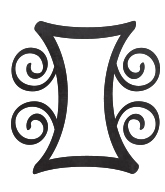

‘EACH BEAD MUST have been a charm,’ I say to Maybe, describing the spectacle at the river. ‘She’s powerful. Worse than Sasabonsam. Worse than I imagined.’
In truth, what I witnessed has filled me with dread. So much so, that I can’t say her name out loud. How did my mother acquire such a storm of magic? If Snake is my talisman, as my elders call her, how has she managed to collect a sack full of them?
Questions zip through me and within seconds, Maybe replies in the matter-of-fact manner only he possesses. ‘Could those beads be markers of her victims? Were those feathers their souls?’
I don’t know. It’s the not-knowing that perplexes me, forcing my mind to flex and dwell on questions I can’t answer. Questions such as: if those feathers were indeed Ma’s victims, are the fledglings that escaped still in thrall to her? Are they still bound to her? Even worse, what if one of them is my father? Or the fathers of my sisters? Waves of despair course through my body. My stomach cramps in revulsion, Maybe caresses my arm.
We’re alone in my great-grandfather’s bedroom, lying side by side on his double bed while Gaza’s gone home for a change of clothes. In a corner is a shrine to my ancestor adorned with a framed photograph of him. Beside it are a bottle of water and a half-filled glass ready to replenish him in the realm of spirits.
‘Do you remember how we used to creep in here and drink at the great chief’s shrine?’ says Maybe.
In spite of everything, I laugh. ‘Has he come to you yet?’
Removing a pair of Aunt Ruby’s sunglasses, Maybe’s eyes open, unseeing. The gold in them, highlighting the beads I put in his hair, gleams, making him seem more attuned to the spirit world than everyday living.
Maybe gathers my fingers, gently kissing their tips. ‘He’s never far away,’ he says. ‘He’s on the edges somewhere, in an in-between place like this.’
I wonder at Maybe’s sensitivity; his understanding of soul-eaters and magic. How does he know things which take others a lifetime to understand? From what I’ve gathered, from what I’ve gleaned through his hair and that loop in time Nana Gyata su revealed, Maybe’s gift is unusual.
I brush my cheek against his. When he smiles, I fondle a few stray hairs by his time bone, the soft ridge above his ear, where grey hair will eventually grow. I rub it gently.
Straightaway, a blast of heat singes my fingers. It’s him again. Maybe’s father, his face threatening as he drills into my mind. Such is the intensity of his rage that as his energy grazes mine, my soul recoils.
‘What is it?’ Maybe asks.
I dwell on sensations that buzz around us like a nest of hornets. Behind the face is a man with a heart so hard, the pain of others means nothing to him. A man who would walk through fire to get whoever and whatever he wants.
I think before I speak, tiptoeing to tease out the truth. ‘Have you ever wondered,’ I ask, ‘if the reason your mother came here was not to protect herself but…’
Maybe bristles, sits up, and retrieving a clump of plasticine from the bedside table begins thumping it. ‘My mother is not a witch,’ he mumbles. ‘She’s not a witch.’
He starts moulding, stretching and kneading before rolling the plasticine into a ball.
‘Have you asked her why she left your father?’
‘There’s no need to. I know what happened. I was there, Sheba.’
‘But you were just a boy.’
He mimics my voice, giving it the frivolous tone of a princess in a house of plenty. ‘Just a boy! Just a boy!’
The tang of lemon sours my mouth. I bite my tongue, seething.
‘Of course, I was young, but I remember what they said about my mother. What they were saying about–’
He slams the ball on his thigh, his face lively with the presence of his dead-departed. They flit over his nose and cheeks, down the side of his neck while his eagle eyes glisten.
More than ever, I want Maybe back to how he was. Back to when he could see me, and our eyes would share kisses.
Flinging the plasticine from one hand to the other, he nods. ‘Yes. Rumours spread about me too. I was the first of four to survive, so they said I was…’ He sighs, searching for a word that escapes him.
‘Weird?’ I suggest.
He half-nods before shaking his head.
‘A spirit child?’
‘Perhaps. They claimed I would bring bad luck to our family, but when Better Life was born…’ His eyes unblinking, he turns his face towards mine. ‘What did you see just now, Sheba?’
I quickly describe the face that thrust itself in front of mine; the face that resembles Maybe’s. ‘He came after you, not your mother. I think he wanted to speak to those you speak to. He wanted what you have.’
‘He must have heard me talking to them…’
‘Did he want to use you? Use your power?’
Forced to reconsider his past in a new light, Maybe closes his eyes. When he opens them again, the luminous shine in them makes him look more vulnerable than ever.
‘My father wanted to be chief. Where I come from, to lead, you have to know how to walk and talk with spirits… how to use magic.’
He pauses, and for what feels like forever, my friend is silent, unreachable, until surfacing once again, his voice breaks, reminding me of how we used to be. ‘Sheba, I need to talk to my mother. Will you take me to her?’
‘Will you come back?’
‘Would you like me to?’
I think of those feathers on the river, the fledglings in the cotton tree. I think of Mother Crow, her wings cruel as the grave, hovering over us, and say: ‘Yes.’
![]()
If I’d hoped that stealing Ma’s love-beads and throwing them in the river would change her behaviour, I soon discover I’m wrong. When she wakes, she follows a routine she’s refined over the past two days. On this, the third day of her progress, she dresses in sheda once again; an up and down in a glorious turquoise blue; a blue guaranteed to warm the heart, if you haven’t seen the look on Nana’s face first.
My grandmother’s wearing her Queen Mother death stare. Eyes dark with curses, her face is a mask of disapproval. In days gone by that look would terrify me: neck and jaws stiff, head held high and those eyes! Not today. Like my aunts and Grandma Baby, I’m doing my best to shield Nana from Ma’s noisy glamour as the terrace starts filling with her friends.
The house, sensitive to my grandmother’s mood, quails. Timbers creak; steel girders squeal, stretching and expanding in a swell of humidity. Our home, as agitated as we are, gasps, thirsty for an end to the dry season. Walls grumble, while ceilings, weighed down by emotion, sag. And when Nana closes her eyes, trying to shut out the din outside, the air hums with anger.
‘Sheba,’ Nana says. ‘Go and see what your mother’s up to. Don’t linger. Report back to me.’
Under normal circumstances, I’d do what she asks: be her eyes and ears; spy on Ma. No problem! But today is not a normal day. How can it be when Nana’s told everyone present that she’s getting ready to die? And after what I witnessed fili-fili with my own eyes this morning, I can’t help but wonder at my family, my grandmother especially. Her daughter, my mother, may have murdered many people. I saw what remained of them fly to the cotton tree. And now that her daughter, my mother, is making mischief outside, instead of asking me to lion-up and tear her apart, Nana wants me to spy and report back? Makes no sense whatsoever.
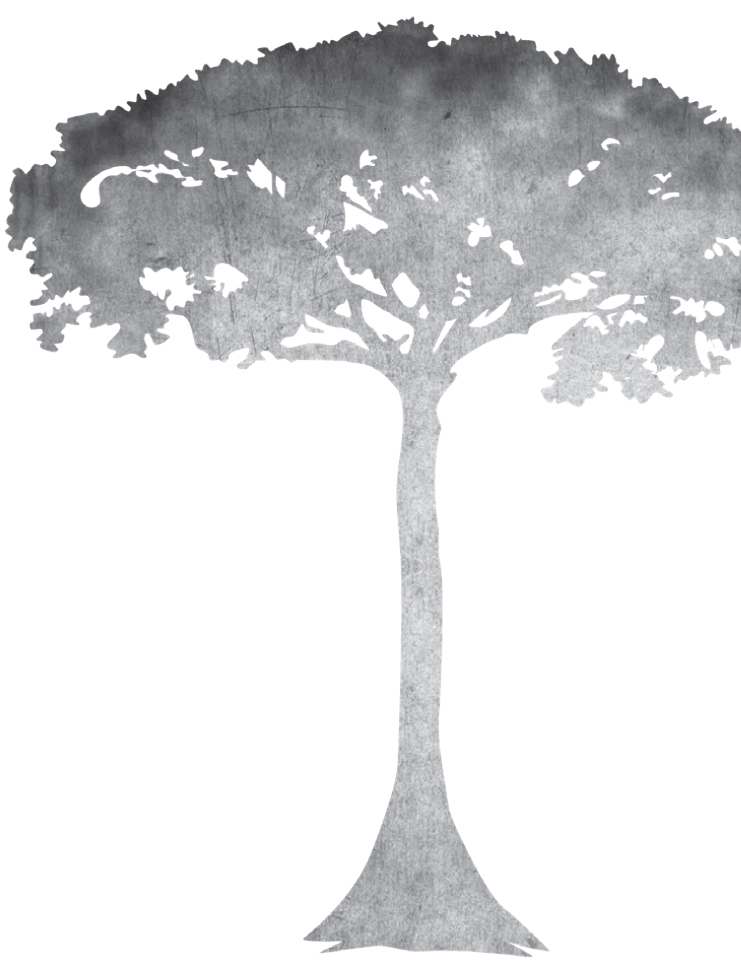
‘Nana,’ I cry. ‘Why don’t you just tell Ma to stop? If you disapprove of what she’s up to, why don’t you do something?’
My aunts, enjoying a light supper of hot chocolate and cake, snigger. Sniggers turn to laughter, strengthened by snorts from Nana and Grandma Baby.
Snake tells me to cool it, go with the flow, but after all I’ve seen and heard today, being laughed at is more than I can bear. The quills of my hair, sheaved in cotton, onigi style, quiver in fury. Lemon drenches my tongue and I glare at them using the sling in my eyes to say: Be careful, ladies. Be very careful indeed.
Aunt Clara, wiping her face of smiles, says: ‘Haven’t you realised, Sheba? If you ask your mother to stop doing something, she doubles down and does it a thousand times over. The best way to get around her is to ignore her.’
I shake my head recalling the insults Ma’s heaped on my aunt since forever. Useless. A sleeping mat no one wants to sleep on. Barren. An empty calabash, no pickney dey inside.
The memory of Ma’s abuse echoes between us and I shake my head again. ‘Ignore her and she’ll hurt you whenever she feels like it.’
The truth of my words stings. A tear drops down Aunt Clara’s cheek and as I squeeze her hand, the party outside shifts gear. There’s more laughter, more clapping and back-slapping, before the first dribble of a song.
‘We can’t just sit here doing nothing!’
Four pairs of eyes impale me. I’m the youngest, I know. My elders are my teachers, but that doesn’t make me a fool! We have to do something, anything, before our house collapses and our village is destroyed. ‘Can’t you feel it?’ I ask.
One after the other, they nod.
‘There’s a stench of sulphur in the air,’ Grandma Baby admits.
Aunt Ruby smooths the unruly ruffles of her blouse. ‘I feel the thrill of glamour on my clothes.’
‘When Sika’s like this,’ Aunt Clara confesses, ‘I’m reminded of my time in Nigeria, and wish I could have a swig of whatever she’s on.’
Nana sighs. Tries to speak, but as the clamour on the veranda grows, she kneads her forehead. ‘God is in control,’ she murmurs. ‘Kwame, the creator of all things is at the helm of this house.’
‘Nana, we have to take control ourselves…’
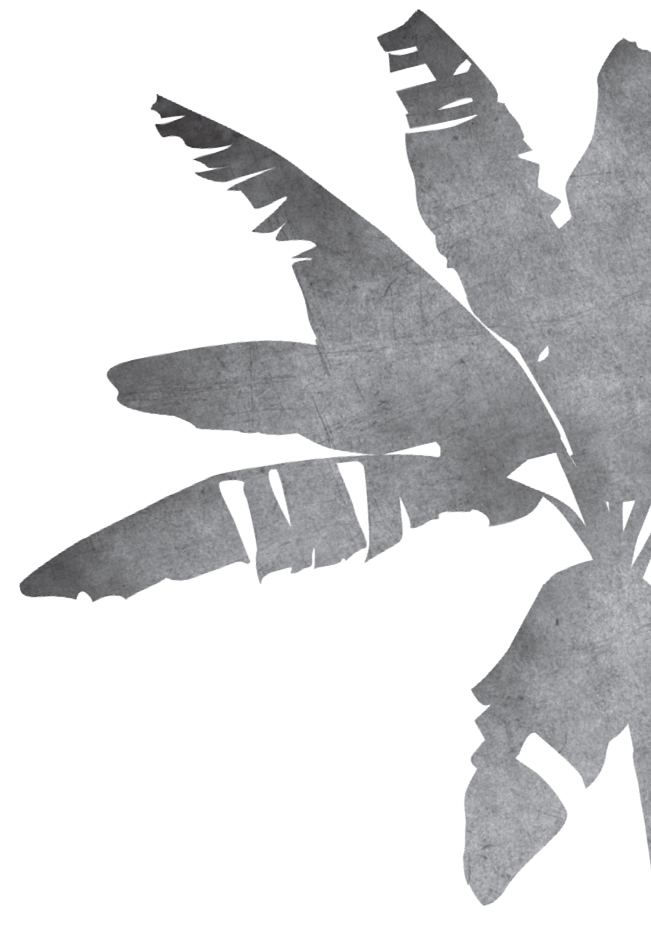
Nana’s eyes snap open and there it is again: her Queen Mother death stare, only this time, directed at me. ‘Grandchild of mine,’ she begins, and then, weighing her words with such tenderness that her love trickles into me, filling me from head to toe. ‘You’re too young to understand what my heart knows to be true. Your mother is a part of us. Her shadow is in each of us, you especially. You can’t see it now, but you soon will.’ Nana places a hand on her chest, rubbing it as if to ease her pain. ‘Now, do what I’ve asked. Go outside and be my eyes. And when your ears are full, before I go to bed tonight, tell me what you’ve seen.’
Outside, the crowd around my mother is bigger than ever. Swaying to the music of their adulation she fills their calabashes with a swing of the hips, a giggle on her lips. Like everyone else, I’m transfixed by her presence. I can’t look away. Even when Ama joins me, her chin on my shoulder, my eyes are on Ma. A flick of her fingers and my feet start to tap. A turn of her head and I can’t help but smile until I notice that beneath the glow of turquoise that adorns her, the glow that flows as smoothly as the river on a cloudless day, are two rows of love-beads around her waist. I cringe.
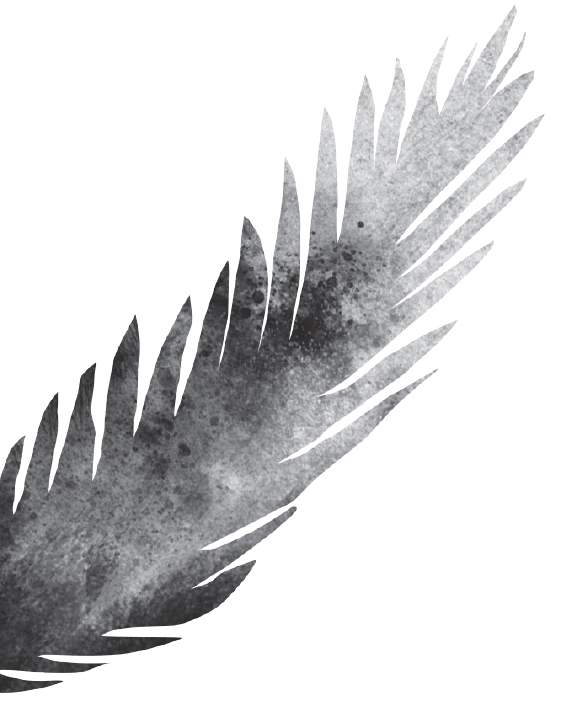
Tempted to look closer, I stay hidden in the shadows wondering if those beads are yet more of her charms. Are they the souls of even more of her victims? Is she ever satisfied? Bewitching her prey is probably what thrills her most. I watch, riveted, while Ma, in her element, conjures her magic, mixing her allure with laughter and song.
Delight hovers in the air like a moth flustered by my mother’s scent: the smell of earth after rain. At the end of a long, dry season, there’s nothing more irresistible than the first hint of a storm. I breathe my mother in and for a moment, I wish I were a toddler again and could run into her arms without knowing what I do.
Snake crushes my finger and straightaway I recall what my ancestor foresaw. Unless I act quickly, unless I act soon, we shall drown in danger of the worst kind. Our time of greatest peril is right now, just before the rains come.
A sheet of lightning flashes, turning night to day. Thunder rolls overhead, and as the night sky sizzles, a group of women barge into our yard. There are twelve of them in the black-and-red robes of deep mourning, red bandanas in their hands. Led by Auntie Esi, Ama’s mother, they’re the most important women of our village: farmers, our baker, dressmaker, the queen mother of our market. Important women who happen to be the wives, daughters, sisters and mothers of some of Ma’s assembled friends. Slowly, carefully, faces grim as death, they tie the bandanas around their heads, a sign they’re on a war footing.
Ma roars with laughter. Her drinking buddies do the same. They laugh until it dawns on them that perhaps the matter at hand should not be made fun of after all.
Hilarity draining into a pit of doubt, only Ma remains firm. A smile lacing her lips, she says: ‘Ladies, why don’t you join us?’
Cover cloths rustle, flapping in a wave of red and black as the women open and then tighten the cloths around their waists.
Not a word is said.
Ma tries again. ‘Esi, old friend, long time. Come and join your husband, Allotey, here. Come.’
Silence reigns. Poisonous, vengeful.
Feet shuffle in a semi-circle, then, Auntie Esi steps forward.
Ma’s eyes spark, and tinder stored in the depths of Auntie Esi’s heart flames. The whites of her eyes red with rage, she can scarcely speak for her trembling.
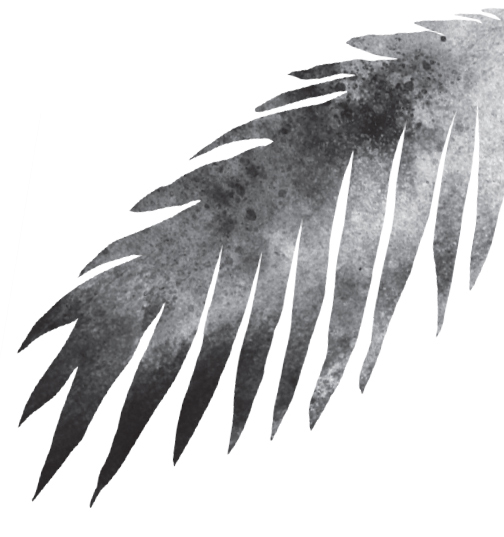
‘Esi, what happened between us, happened a long time ago… it’s over, forgotten,’ says Ma.
Still quaking, our next-door neighbour raises her hand, and pointing an accusing finger at Ma, her voice crackles fire, ‘You. You use what’s in you to bewitch and belittle. We don’t want you here.’
The women clap, grunting approval. They clap and then spit in Ma’s direction.
Once they’ve finished, once they’ve told Ma to stop whatever she’s up to, contempt wrinkles my mother’s brow, and hands on hips, she eyeballs them.
If you know her as well as I do, you’ll understand why I step into the gloom to hide my shame. I step back, tread on Ama’s foot, the sky flashes white, and Ma’s insults begin.
‘Look at that face of yours, Esi! Pimpled, dark as midnight. Who’d want to wake up to a face as pock-marked as yours? No wonder Allotey is here.’
‘Dinah, smell yourself, woman! You should wash at least once a day. Once, peh! Next time you step foot here, my sister, I beg you, take time and wash…’
On and on she goes, naming them before shaming them with the blade at the tip of her tongue. Their faces, hair, skin, legs, bodies are as nothing compared to hers. She even points to the leader of the market women, Auntie Vida, someone I’ve learned to steer clear of.
‘Vida!’ Ma cries. ‘Is that you? Have your ears grown even larger with age? Aba! They’re like the wings of a bat now!’
Aghast, Ama and I look at each, shrinking into the shadows.
Delving into the past, Ma hurls daggers at the heart of each of the women ranged against her: family scandals that hint at murder, theft, broken marriages, disputes. If it happened, Ma lobs it at them, revelling in their pain. She’s not laughing now. There’s no need to touch her locks to feel the burn of her tongue. No need to stroke her skin to suffer the furnace blast of her spirit. Every word is loaded with dynamite, every sentence saturated with such venom that as my mother rages, her hatred scorches my ears.
At last, a feather floats to her feet, and instead of locks piled on her head, there’s a ruffle of plumes. Mother Crow is speaking now in a voice wild as the wind, her resentment unending. Her voice thunders while the sky above flashes with lightning once again. The ground I’m standing on shifts, and bit by bit, our house seems to rise as the roof tilts from one side to the other.
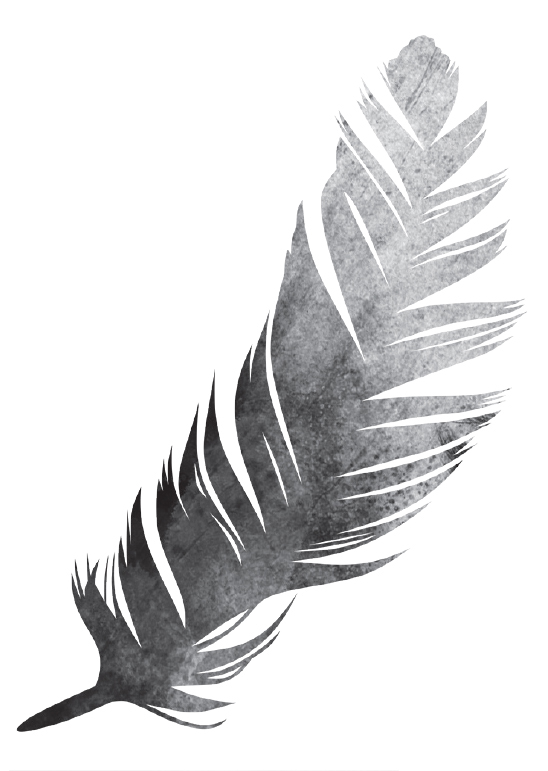
I steady myself by clutching Ama’s arm. There’s no stopping Ma now. Incandescent, she lacerates her rivals with the noxious fury of Mother Crow, and as she does so, the beads around her waist glitter. Moving, twitching. Alive.
Magnificent and deadly, her rage soars and the beads squirm, thriving on malice.
Nobody sees them but me.
Not a single person breaks ranks.
Ma’s wrath holds them spellbound. Not one of them moves. So it is, that the women, humiliated, slope away, while Ma towers over them, triumphant.
Half in thrall to her, half-ashamed, I say to Ama, ‘My mother has no respect. She’s more of a child than we are. I bet you, by tomorrow, every woman who hears what happened tonight will hate her.’
‘Bestie-best,’ Ama replies, ‘don’t you know? They hate her already.’